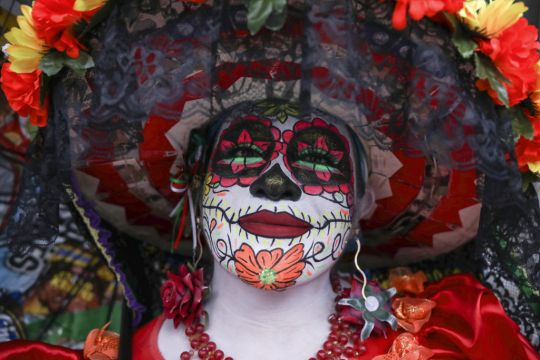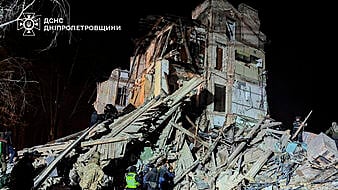Mexico returned to mass commemorations of the Day of the Dead on Sunday, after traditional visits to graveyards were prohibited last year because of the coronavirus pandemic.
But the one-year hiatus showed how the tradition itself refuses to die: Most families still celebrated with home altars to deceased loved ones, and some snuck into cemeteries anyway.
Gerardo Tapia Guadarrama on Sunday joined many others at the cemetery as he visited the grave of his father Juan Ignacio Tapia, who died in May 2020 of a thrombosis.
Even though cemeteries in Mexico were closed to visitors last year to avoid spreading the virus, so strong is the tradition that his son still slipped into the cemetery in the eastern Mexico City suburb of Valle de Chalco to visit him.

“Lat year it was prohibited, but we found a way,” Tapia Guadarrama said. Much of graveyard has low walls that can be jumped.
“To live is to remember,” he said. “What they (the dead) most want want is a visit from those they were close to in life.”
The holiday begins on October 31, remembering those who died in accidents; it continues November 1 to mark those died in childhood, and then those who died as adults on November 2.
Observances include entire families cleaning and decorating graves, which are covered with orange marigolds. At both cemeteries and at home altars, relatives light candles, put out offerings of the favourite foods and beverages of their deceased relatives.
There was a special altar in downtown Mexico City dedicated to those who died of Covid-19. Relatives were allowed into a fenced-off plaza and offered equipment to print out photos of their loved ones, which they could then pin, along with handwritten, messages on a black wall.
It was a quiet, solemn remembrance in a country where coronavirus deaths touched almost all extended families.

Mexico has more than 288,000 test-confirmed deaths, but probable coronavirus mortalities as listed on death certificates suggest a toll closer to 440,000 – by some counts the fourth-highest in the world.
For a country where people usually die surrounded by relatives, Covid-19 was particularly cruel, as loved ones were taken off alone in plastic tents, to die alone in isolation.
“The only thing I could say to him was, ‘Do everything the doctors tell you,'” Gina Olvera said of her father, who died of coronavirus. “That was the last thing I was able to say to him.” Olvera said she told her father, as she taped his photo to the memorial, “Well, you didn’t make it, but you are here with us.”
One woman wept as she pinned up a photo of a female relative. Another, Dulce Moreno, was calm but sad as she pinned up a photo of her uncle and her grandfather, Pedro Acosta Nunez, both of whom died of complications of Covid-19.
“The house feels empty now without him (the grandfather), we feel lost,” Moreno said.
For most, it was a joyful return, above all, to public activities like public altars and the Hollywood-style Day of the Dead parade that Mexico City adopted to mimic a fictitious march in the 2015 James Bond movie Spectre.







